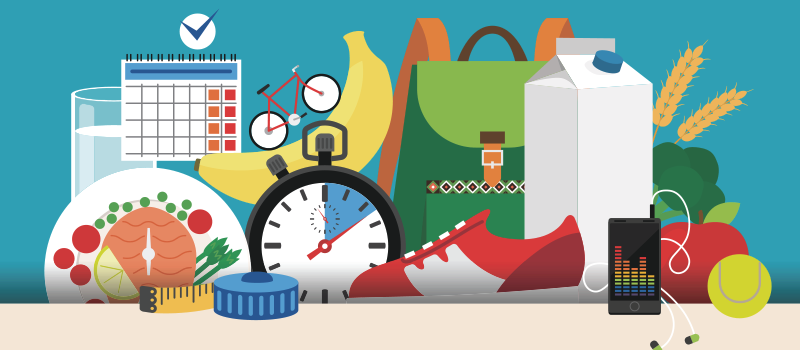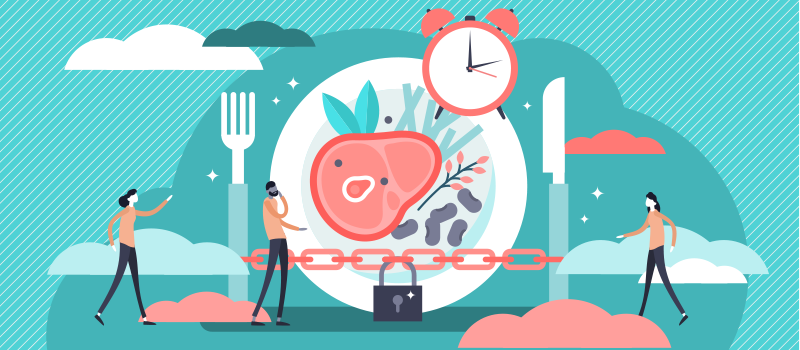What’s the Buzz
The Bee Healthy Blog
Why Can’t You Eat Before Surgery?

If you have an upcoming surgery, your surgeon’s office may have asked you to stop eating at least eight hours before your procedure. Now, if the surgery is for a medical condition involving your digestive tract, this is still understandable. But if you’re having surgery on your wrist, you might be wondering why you can’t eat or drink for several hours prior to the surgery. Please keep reading to learn why a fasting period is necessary before your scheduled surgery time.
What types of surgeries can you not eat or drink before?
It does not matter what part of your body the procedure involves. Your surgeon and your anesthesiologist will ask you to stop eating and drinking several hours before a planned surgery if you are having the procedure done under general anesthesia or regional anesthesia (epidural or IV sedation). However, you do not need to stop eating and drinking before procedures that will be done using local anesthesia or nitrous oxide (laughing gas), for example, tooth extractions in a dentist’s office.
Why do you need an empty stomach before surgery?
You need an empty stomach before surgery because having solid food or liquids in your stomach when you receive anesthesia can cause serious complications such as:
Aspiration pneumonia
When something such as food or saliva goes down the wrong tube, i.e., your trachea (windpipe) instead of your esophagus (food pipe), it is called aspiration. When you’re awake, your body immediately reacts by gagging, coughing, or vomiting to get the substance out. However, when you’re under anesthesia, these reflexes are not present. Also, you have an endotracheal tube in your trachea during general anesthesia, which makes it easier to aspirate and difficult for medical staff to detect aspiration. This can allow foreign substances to make their way into your lungs and cause pneumonia. The presence of food or liquids in your stomach increases the risk of aspiration.
Nausea and vomiting
It’s common to have postoperative nausea and vomiting after anesthesia. The presence of food in your digestive system can make these symptoms worse. If your stomach is empty when you have a surgical procedure, it can help prevent nausea and vomiting from occurring. Preventing postoperative nausea and vomiting is easier than treating it with medications once it happens.
Bowel preparation
If you’re having a procedure on your digestive tract, for example, a colonoscopy, your doctor will give you instructions for a bowel prep. This is to empty and prepare your bowels for the procedure. Failure to stop eating and drinking as advised before the procedure can ruin the bowel preparation and force a postponement.
How many hours before surgery should you not eat?
The usual recommendations are to stop eating solid foods and dairy products 8 hours before your scheduled arrival time at the surgical center. You can, however, continue drinking clear liquids (i.e., water) up to 2 hours before your scheduled arrival at the hospital. This will help you stay hydrated. So, if you have been asked to report to the hospital at 8 a.m., you should stop solid food at 12 midnight and clear liquids at 6 a.m.
Infants and toddlers can usually eat solid foods up to 8 hours before surgery and drink breast milk or formula up to 6 hours before surgery.
There may be different recommendations for a specific procedure. You should follow the instructions from your surgical care team carefully. Do not hesitate to ask your physician or surgeon if you have additional questions.
What to eat or drink before surgery?
Most procedures are scheduled for the morning, so you will spend most of the fasting period asleep. Plan to have a light meal before you go to bed. You can include low-fat dairy products, but avoid a heavy meal or fatty foods that are hard to digest.
Drink regularly (clear fluids only) until the cut-off time 2 hours before your arrival at the surgery center. Note that clear fluids include water, clear juices like apple juice, black coffee or tea (without milk), and energy drinks like Gatorade. Clear liquids do not include pulpy fruit juices or smoothies.
In most cases, you can take your regular medications with a few sips of water. However, keep in mind that some medications, for example, blood thinners, may need to be discontinued several days before surgery. Follow your doctor’s instructions carefully.
Chewing gum during the period of fasting before surgery is not encouraged as it can increase the amount of fluid in your stomach. However, if a patient inadvertently chews gum during fasting, it does not necessarily lead to cancellation of the surgery.
What happens if you eat before surgery?
Patients who have their last meal less than 8 hours before a scheduled surgical procedure will need to have their surgery postponed to ensure safety.
What happens if you drink clear liquids before surgery?
As mentioned, you can drink clear liquids up to 2 hours before surgery. This is because food can take up to 8 hours to leave the stomach, but clear liquids leave the stomach in 2 hours or less.
What happens if you drink water up to six hours, up to four hours, and up to two hours before surgery?
Most people can drink water up to six, four, and two hours before surgery without problems. However, if your doctor has given you specific instructions, follow them carefully to prevent your surgery from being postponed or having postoperative complications.
References:












SOCIAL